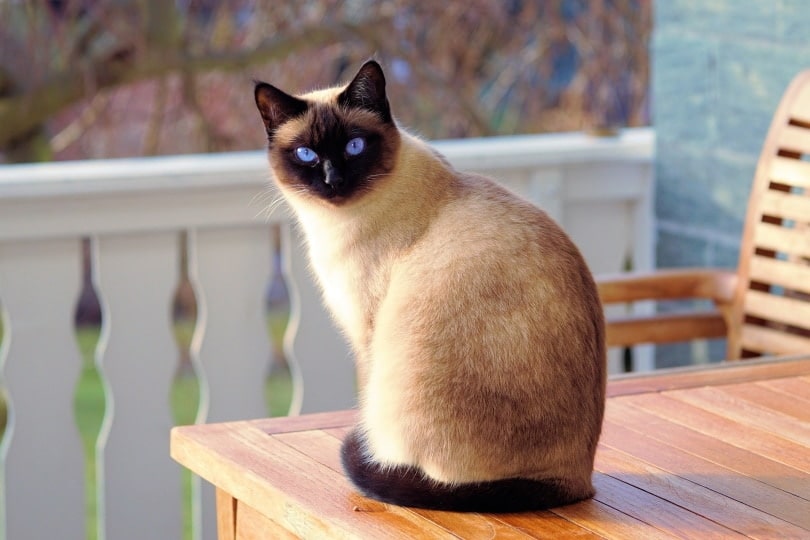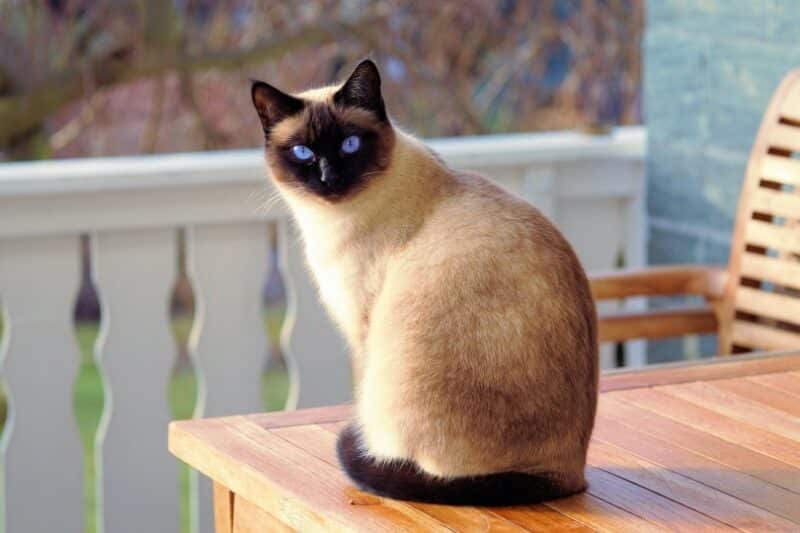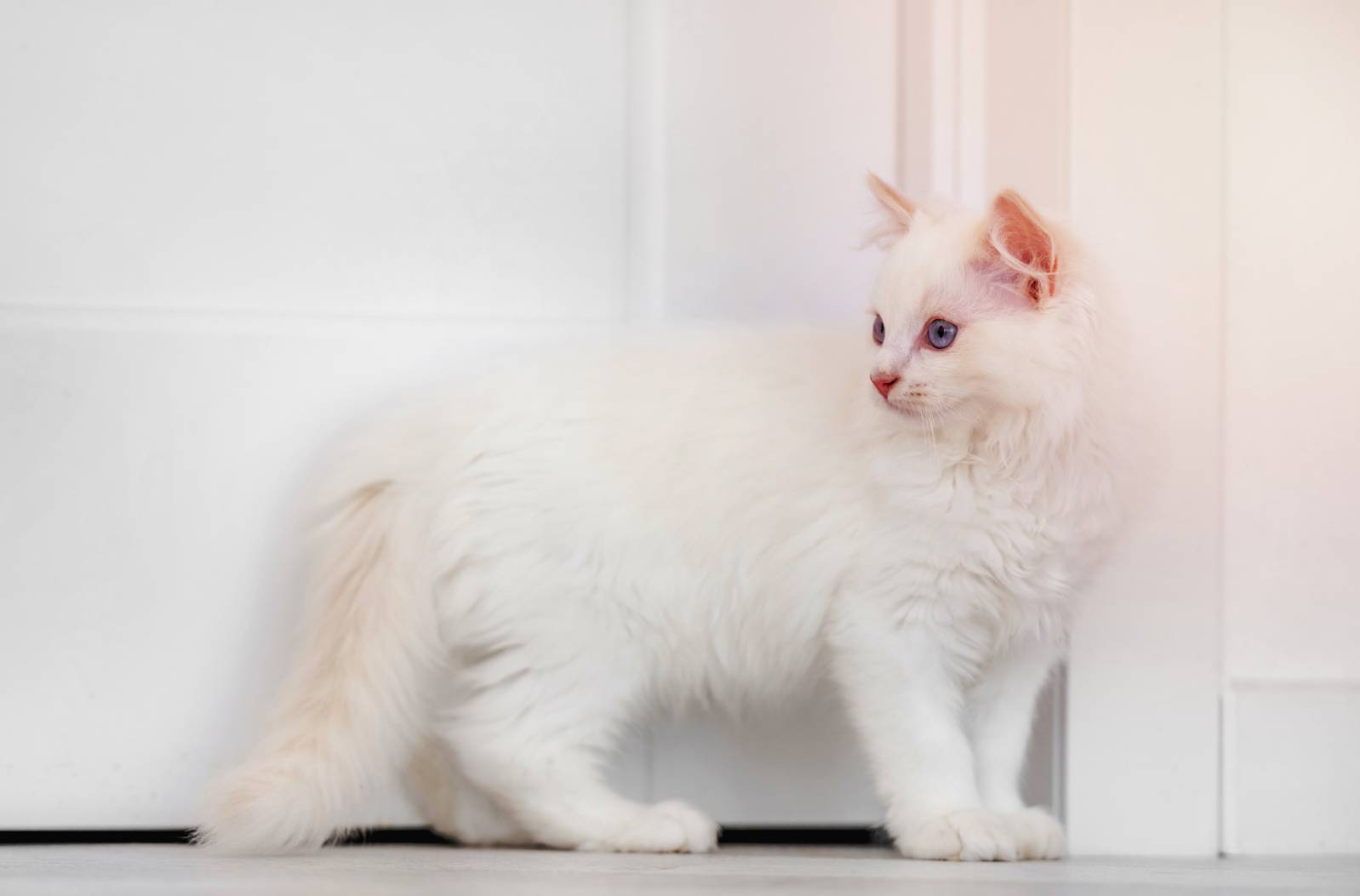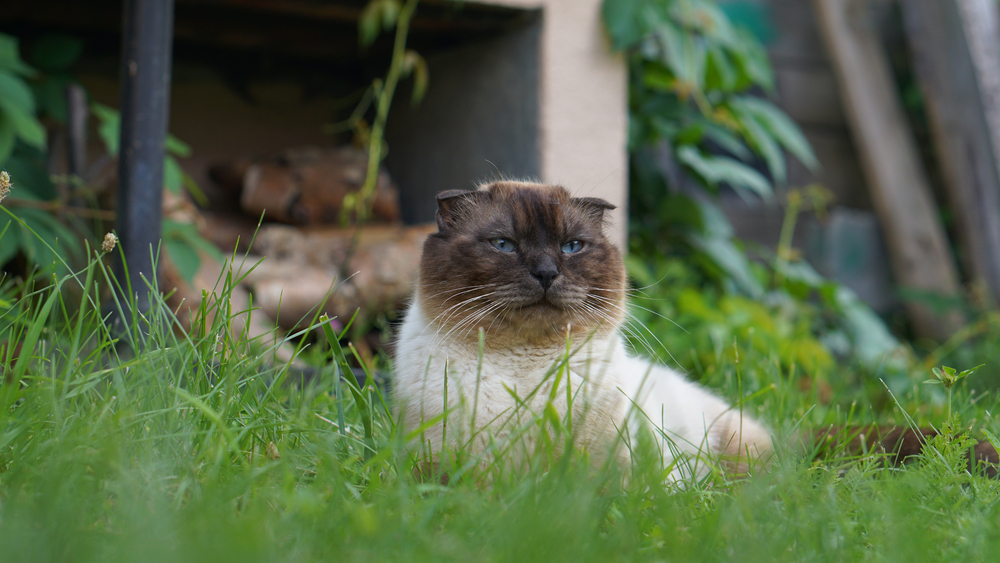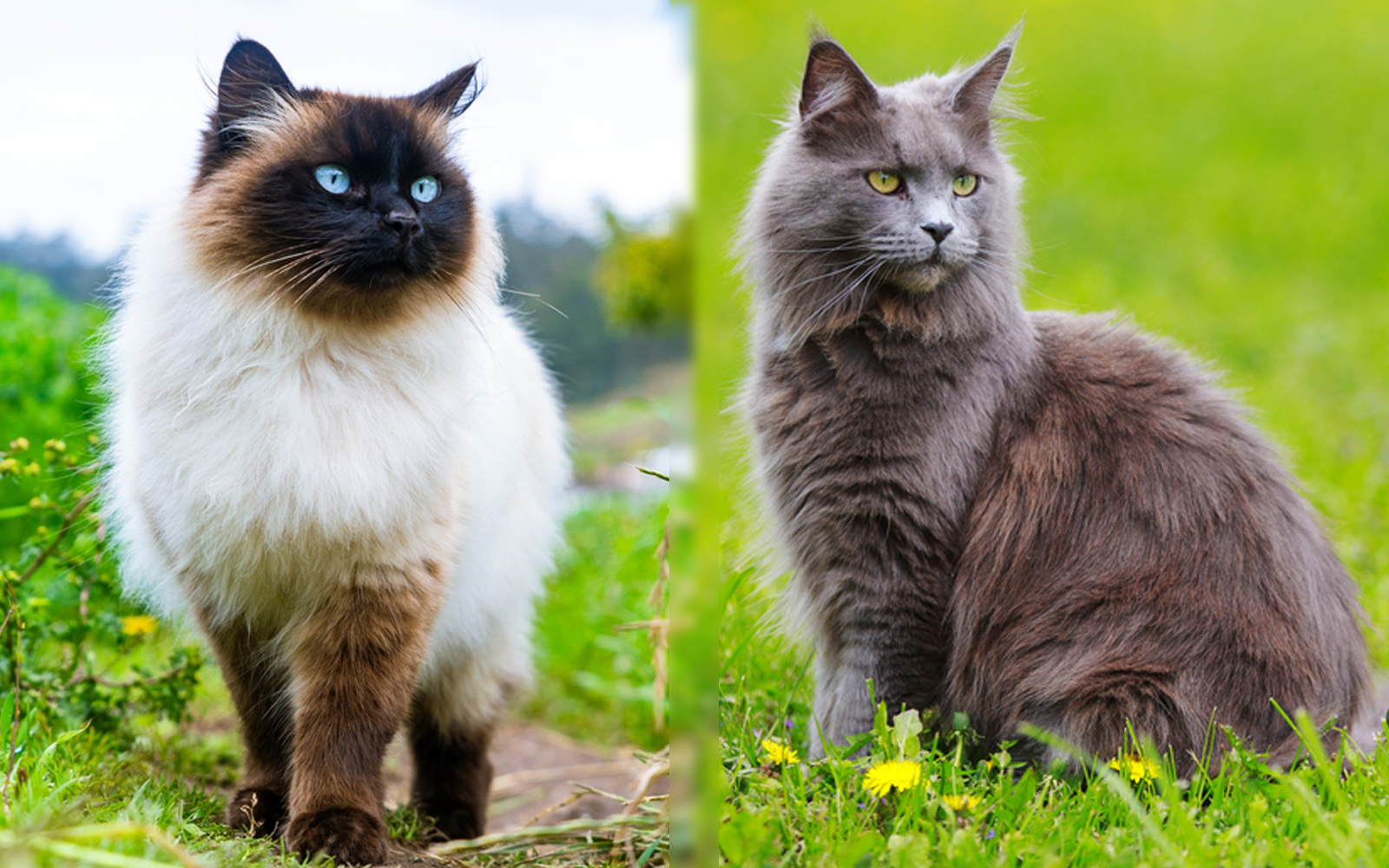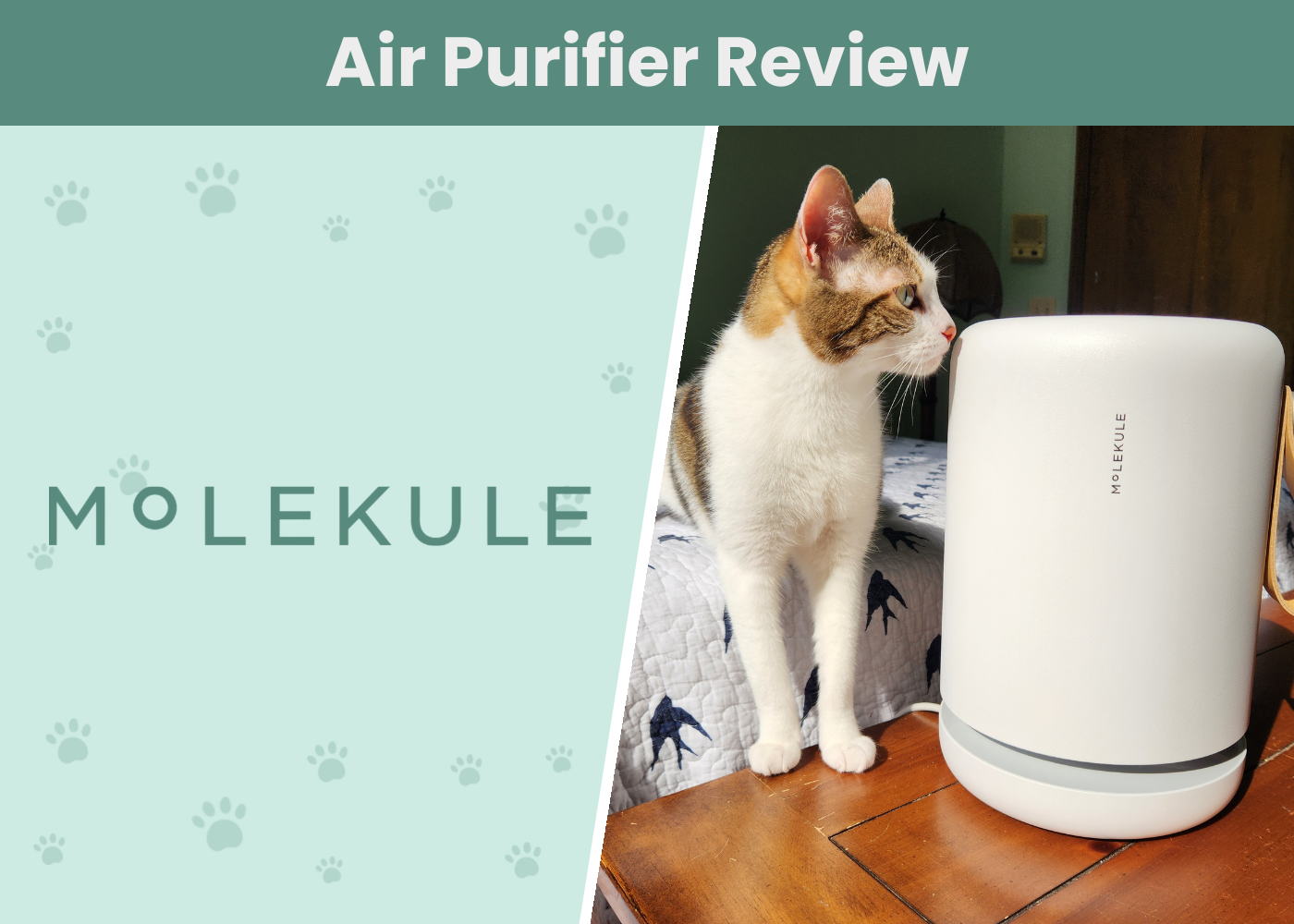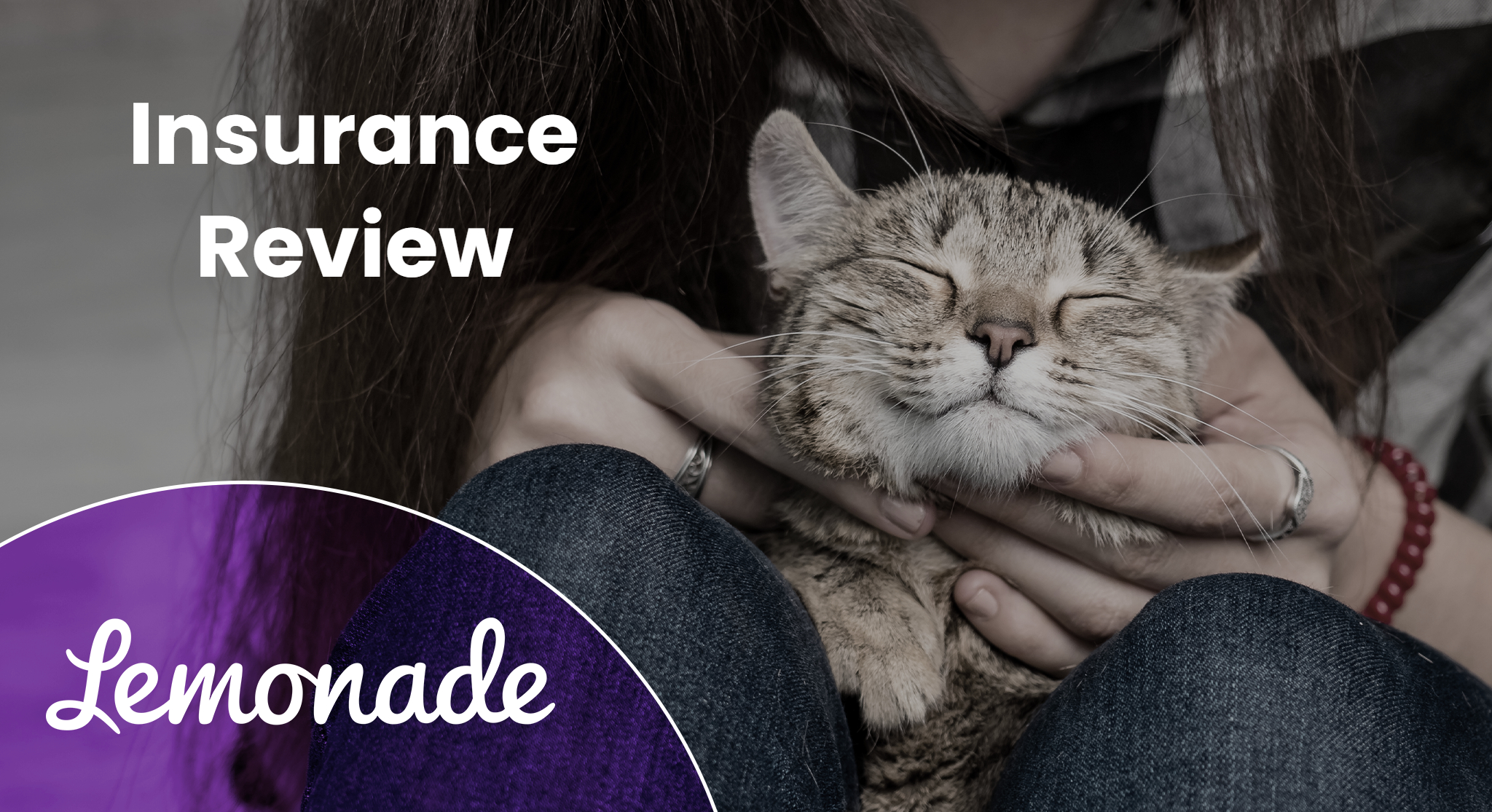Click Below to Skip Ahead
If you’re looking for a feline companion that’s as beautiful as it is intelligent, then you’ve come to the right place. Siamese cats are renowned for their striking blue almond-shaped eyes, sleek coat, and unique color points. But their allure goes beyond their stunning appearance. These affectionate and sociable cats are known for their loyalty and devotion to their human companions. If you’re a seasoned cat lover or new to the world of feline friends, this quick guide will give you all the info you need about this gorgeous cat breed.
Breed Overview
Height:
8 – 10 inches
Weight:
6 – 12 pounds
Lifespan:
14 – 20 years
Colors:
Gray, black, blueish-gray, bi-colored gray and white
Suitable for:
Owners who are looking for a highly interactive and engaging pet
Temperament:
Affectionate, curious, and easily adaptable to new unfamiliar environments
Siamese cats are a fascinating breed known for their unique appearance and distinct personality traits. While they’re not a mix of other breeds, Siamese cats actually have a long and rather interesting history. Originating in Thailand (formerly known as Siam), these cats were highly valued by royalty and revered for their beauty and grace. They were even believed to possess mystical powers, believe it or not.
One of the most striking features of Siamese cats is their blue almond-shaped eyes. Their short, sleek coat comes in various color points, with the body being lighter in color than the face, ears, paws, and tail. This pattern is caused by a gene that affects the production of pigment in their fur.
In terms of personality though, Siamese cats are known for being very intelligent and social creatures. They’re often described as being very vocal, with a distinct and loud voice that they use to communicate their needs and desires.
Siamese Cat Characteristics
Siamese Cat Breed Kittens
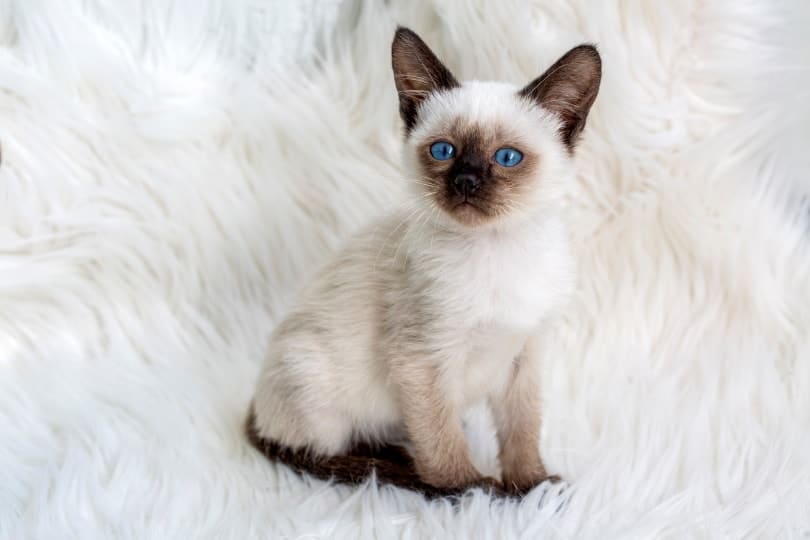
Siamese kittens, like most kittens, are full of energy and curiosity, often exploring their surroundings with great enthusiasm. They’re highly social animals and enjoy the company of humans and other pets. Siamese kittens are also known for their vocal nature, often communicating with their owners through a range of meows and purrs. Their striking blue eyes and sleek coat add to their charm, making them a popular choice for cat lovers.
And when it comes to buying Siamese kittens, it can vary in terms of ease depending on your location and availability. In some areas, there may be breeders or pet stores that specialize in Siamese cats, making it relatively easy to find and purchase a kitten. However, in other areas (like in smaller cities or rural areas), Siamese kittens may be less common, requiring more effort to locate a breeder or source.
The cost of Siamese kittens can also vary significantly depending on various factors. Purebred Siamese kittens from reputable breeders are generally more expensive compared to mixed or non-purebred kittens. The price can also be influenced by factors such as the kitten’s lineage, coloration, and the breeder’s reputation. On average, Siamese kittens can range anywhere from $500 to $2,800 or more. It’s important to consider the cost as well as the long-term commitment involved before deciding to bring a Siamese kitten into your home.
Temperament & Intelligence of the Siamese Cat Breed

Are These Cats Good for Families?👪
Definitely. Siamese cats can make great additions to families due to their affectionate and super social nature. These cats are known for being highly interactive and forming strong bonds with their owners, including children. They seem to even thrive on human companionship and enjoy being involved in family activities. Siamese cats are often described as being loyal, gentle, and playful, making them suitable companions for families with children.
Does This Breed Get Along With Other Pets?🐶 😽
While individual personalities can vary, Siamese cats tend to be friendly and adaptable, making it easier for them to get along with other animals in the household. However, as with any pet, proper introductions and a slow, measured approach are important to ensure a harmonious relationship between Siamese cats and other pets (especially large dogs).
When introducing a Siamese cat to another pet, it’s essential to provide a controlled and safe environment. This can be done by initially keeping the pets in separate areas and allowing them to become familiar with each other’s scents before any direct contact is made. You may also want to closely supervise all initial interactions with your cat and any other pets in your home. Like any other feline, these cats can and will become aggressive if they feel threatened in any way. The success of the introduction largely depends on the personalities of the animals involved. Just try to remember that every cat is an individual, and some Siamese cats may have a more dominant or territorial nature that could affect their ability to get along with other animals.
It is also worth noting that proper socialization from a young age can greatly increase the chances of a Siamese cat getting along well with other pets. Exposing them to different animals early on can help them develop positive associations and reduce the likelihood of fear or aggression towards other pets in the future.
Things to Know When Owning a Siamese Cat
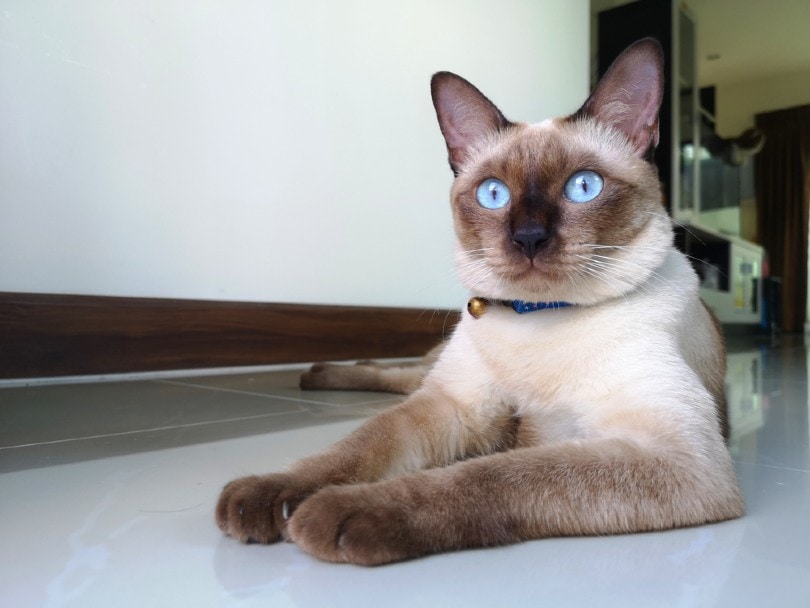
Food & Diet Requirements 
Siamese cats are known for their active and energetic nature, so a diet that provides them with the right balance of nutrients is essential. The number of calories a Siamese cat needs per day can vary depending on factors such as age, weight, and activity level. On average, an adult Siamese cat requires around 200–300 calories per day. However, note that this is just a general guideline and individual cats may have different needs.
Also, look for cat food brands that specifically cater to the needs of Siamese cats, as these will contain the necessary proteins, vitamins, and minerals to keep them healthy. Some of the best cat food brands for Siamese cats include Royal Canin Siamese Breed Health Nutrition, Blue Buffalo Wilderness High Protein Dry Cat Food, and Hill’s Science Diet Adult Sensitive Stomach & Skin Dry Cat Food.
These brands are known for their high-quality ingredients and comprehensive nutritional profiles. However, it’s always a good idea to consult with your vet to determine the specific dietary requirements of your Siamese cat – especially if it’s your first one. A vet can tell you about the health conditions that these cats are prone to and advise accordingly. We’ll discuss some of these in more detail in a bit.
Exercise🐈
Siamese cats are known for their high energy levels and active nature. They require a good amount of daily activity and exercise to keep them physically and mentally stimulated. It’s recommended that Siamese cats engage in at least 30 minutes to an hour of exercise each day. This can include playing with toys, interactive games, or even going for walks on a leash. Regular exercise not only helps to keep them fit and healthy but also helps to prevent behavioral issues that may arise from pent-up energy.
To keep Siamese cats entertained, try to provide them with a variety of stimulating activities. Interactive toys such as puzzle feeders or treat-dispensing toys can keep them engaged and mentally stimulated. Playing hide-and-seek games or engaging in interactive play sessions with their owners can also provide a great source of entertainment for Siamese cats – many of these toys you can make yourself with stuff you have around the house.
It’s important to note that Siamese cats are really social animals and thrive on human companionship. Spending quality time with them, such as grooming or cuddling, can also help to keep them entertained and happy. Also, providing them with vertical spaces like cat trees or shelves can give them opportunities for climbing and exploring, which can be highly entertaining for them.
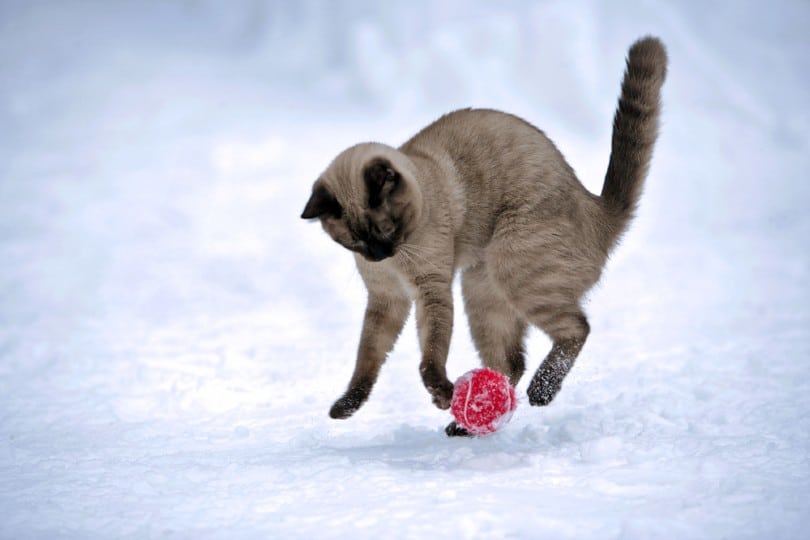
Training🧶
Training a Siamese cat can be a rewarding experience and can help them to become easier pets to handle once they reach adulthood. The good thing is that they’re highly intelligent and just need positive reinforcement and consistency to get things down. So, start training your Siamese cat from an early age.
Siamese kittens are like little sponges and can easily pick up on cues and commands. Begin with basic obedience commands and perhaps some potty training. Use treats as a reward and be patient with your cat. Siamese cats respond well to a calm and consistent training approach.
Siamese cats also enjoy interactive play sessions. Use toys that encourage mental stimulation and physical exercise. Puzzle toys and treat-dispensing toys are great for keeping Siamese cats entertained and mentally engaged. Incorporate playtime into your daily routine to keep your Siamese cat happy and active.
Grooming ✂️
Siamese cats have short, sleek coats that require minimal grooming. And due to their grooming habits, these cats generally don’t require regular baths. However, there may be certain circumstances where a bath is necessary. For example, if your Siamese cat gets into something sticky or dirty, a bath may be needed to remove the substance from their fur. Additionally, if your Siamese cat has a skin condition or allergies that cause excessive oil production or itching, a bath with a specially formulated shampoo recommended by your veterinarian may be beneficial.
Also, regular grooming can help keep their coats healthy and shiny. So, you’ll need to brush your Siamese cat’s coat once a week to remove any loose hair and prevent matting. You can use a soft bristle brush or a grooming glove to gently brush their fur. It’s also important to trim your Siamese cat’s nails regularly to prevent them from becoming too sharp or causing any injuries. You can also simply take your cat to the groomer every 6 to 8 weeks and have them do these things.
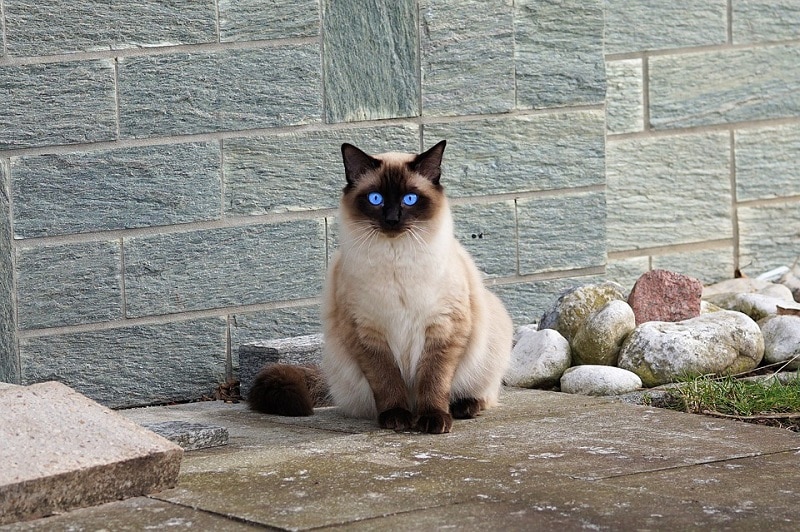
Health and Conditions🏥
- Allergies
- Skin problems
- Asthma
- Amyloidosis
- Kidney disease
- Respiratory issues
- Dental problems
Minor Conditions
- Allergies – Siamese cats are known to have a heightened sensitivity to certain foods and environmental allergens. Their common allergens include flea bites, bacon, dust, pollen, cheese, mold, and avocado. This sensitivity can lead to allergic reactions and skin irritations in these cats. So, it’s pretty crucial for owners to be mindful of the types of food and allergens that their cats are exposed to. Regular grooming is also crucial in managing these minor health conditions. By keeping their coats clean and free from potential allergens, owners can help prevent allergic reactions and skin irritations in Siamese cats. Also, avoiding exposure to known allergens can significantly improve the overall health and well-being of these sensitive felines.
- Skin Problems – Unfortunately, these cats are also more susceptible to various skin issues. These issues can range from mild irritations to more serious conditions that require veterinary attention. One common skin problem seen in Siamese cats is dermatitis, which is characterized by inflammation and itching of the skin. This can be caused by allergies, parasites, or even bacterial or fungal infections. Siamese cats are also known to be more susceptible to certain types of skin cancer, such as squamous cell carcinoma. Additionally, they may be prone to developing skin infections due to their thin and delicate skin. Other common issues include lentigo (age spots), dermatitis, ringworm, and feline hyperesthesia syndrome. Regular grooming, proper nutrition, and a clean living environment can help prevent some of these skin issues.
- Asthma – Siamese cats are also fairly prone to developing asthma – yes cats can have asthma just like humans. This respiratory condition affects the airways of these feline companions, causing difficulty in breathing and wheezing sounds. The exact cause of asthma in Siamese cats isn’t fully understood, but it’s believed to be a combination of genetic predisposition and environmental factors. So, it’s important for Siamese cat owners to be aware of the signs of asthma, such as coughing, wheezing, and labored breathing, and to seek vet care promptly if any of these things are observed.
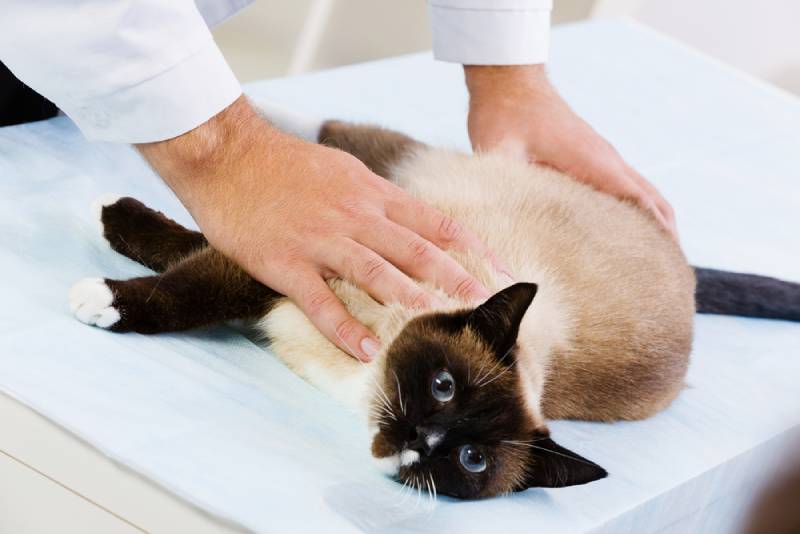
Serious Conditions
- Amyloidosis – This condition is characterized by the buildup of abnormal proteins in various organs of the body. This genetic predisposition makes them more prone to this disease compared to other cat breeds. Amyloidosis can affect different organs such as the liver, kidneys, and intestines, leading to organ dysfunction and potential failure. Common signs of amyloidosis may include weight loss, decreased appetite, vomiting, and diarrhea. Early detection and proper management can help improve the prognosis for affected cats and even prevent it. Regular veterinary check-ups and a balanced diet are recommended to support the overall health and well-being of Siamese cats.
- Kidney Disease – Siamese cats are also at an increased risk of developing kidney disease. This is a chronic condition that affects the kidneys’ ability to function properly and filter waste products from the blood. Signs of kidney disease in Siamese cats may include increased thirst and urination, weight loss, poor appetite, and lethargy. Early detection and management of kidney disease is essential in improving the cat’s quality of life. This may include dietary changes, medications, and regular monitoring of kidney function.
- Respiratory Issues – One of the most common health issues seen in Siamese cats is respiratory problems. Siamese cats have a predisposition to respiratory infections, which can be caused by viruses or bacteria. These infections can lead to issues such as coughing, sneezing, nasal discharge, and difficulty breathing. So, it’s important for Siamese cat owners to keep a close eye on their pet’s respiratory health and seek veterinary care if any concerning signs arise.
- Dental Problems – Another serious health condition commonly seen in Siamese cats is dental problems. Sure, many felines can have dental problems, but Siamese cats are more prone to dental issues such as gingivitis and periodontal disease. This is because they have a genetic predisposition to having crowded teeth, which can make it difficult for proper oral hygiene. If left untreated, dental problems can lead to pain, tooth loss, and even systemic infections. Regular dental care, including brushing their teeth and regular check-ups with a vet, is crucial in preventing and managing dental issues in Siamese cats.
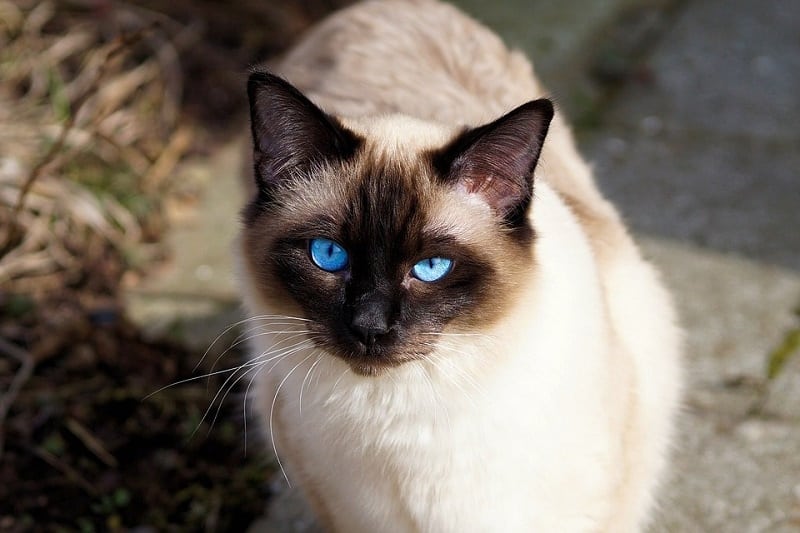
Male vs Female
One of the most noticeable distinctions between the two sexes is their physical appearance. Male Siamese cats tend to be larger and more muscular than their female counterparts. They typically have a more robust frame and a broader head. On the other hand, female Siamese cats are generally smaller and more petite in size, with a somewhat slimmer and daintier appearance. These differences can vary from cat to cat, but they are commonly observed among the breed overall.
Another significant difference between male and female Siamese cats lies in their temperament and behavior. Male Siamese cats are often more laid-back and easygoing compared to females, which tend to be more assertive and independent. Males are typically known for their affectionate nature and enjoy being lap cats, seeking out attention and cuddles from their human companions. Females, on the other hand, may display a slightly more aloof demeanor and prefer to maintain their own personal space. They can still be loving and affectionate, but they may not seek out attention as actively as males.
One particular aspect where male and female Siamese cats differ is in their vocalization. Siamese cats are famously known for their talkative nature, but males tend to be more vocal than females. Male Siamese cats often have a louder and more persistent meow, which they use to communicate their needs or seek attention from their owners. Females, although still vocal, may not exhibit the same level of intensity in their meowing.
3 Little-Known Facts About The Siamese Cat
1. They were given as gifts.
Siamese cats are believed to have originated from Thailand, which was previously known as Siam. They were considered sacred and were kept by members of the royal family. Siamese cats were highly valued and were often given as royal gifts.
2. Siamese cats love to talk to you.
Siamese cats are known for their vocal nature and ability to communicate with their owners – sort of like Huskies. They have a wide range of vocalizations, including loud meows, chirps, and even trills. They’re also not afraid to express their opinions and will often engage in fun “conversations” with their owners.
3. Their coat is determined by their temperature.
Siamese cats have a unique trait called “temperature-sensitive albinism.” This means that their coat color is affected by their body temperature. The cooler parts of their body, such as the extremities, have darker color points, while the warmer parts, such as the body, have lighter fur. This phenomenon is known as “point coloration” and is one of the defining characteristics of these gorgeous cats.
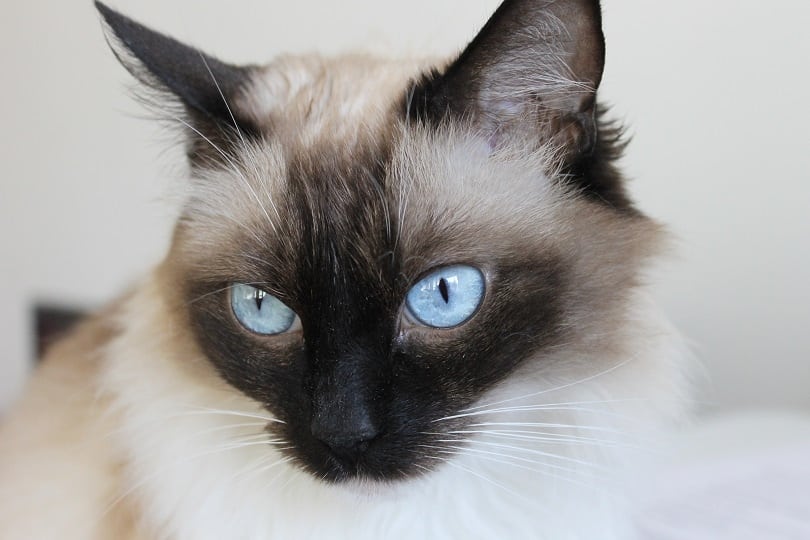

Final Thoughts
Siamese cats are also known for their intelligence and curiosity, so they require physical and mental stimulation to keep them entertained. Owners who are willing to dedicate time and energy to playing with their Siamese cats will find that they make wonderful companions. Additionally, Siamese cats are known for their vocal nature, so owners who enjoy a chatty pet will appreciate their constant communication. Siamese cats are also known for their playful and mischievous nature, keeping their owners entertained with their antics. Overall, these adorable cats are best suited for owners who can provide them with a loving and interactive environment.
Next on your reading list:
- 7 Ways to Make Your Cat Smell Good – Natural Remedies
- Why Is My Cat Always Hungry? 10 Vet-Reviewed Reasons for Excessive Eating
Featured Image Credit: Andreas Lischka, Pixabay

